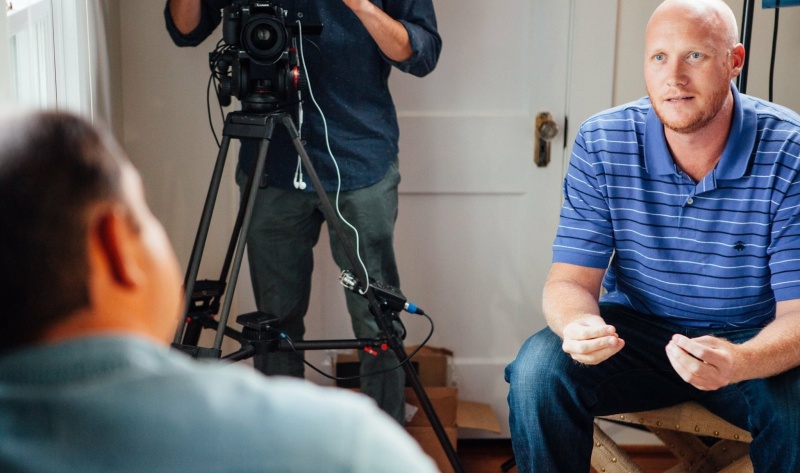I’m a very big believer in surrounding yourself with really good core competencies and knowing your own. – Bo FishbackLegendary boxer Mike Tyson had a famous quote, “Everyone has a plan until they get punched in the mouth.” Tyson was addressing a reporter’s question on his opponent’s technique, but the quote certainly applies in the business world as well.
When it comes to starting a business, adversity is likely to play a prominent role. Every entrepreneur starts out with a great idea and a foundational plan for how to start and grow their business, but rarely does everything go according to plan. In our fourth episode of Open for Business, host John Henry takes a look at how two very different business experienced failure, and lived to tell about it.
From abandoning a 100-year-old business model, to not being able to live up to promises made to your investors, we unearth critical mistakes made and surface four key lessons to help every small business owner deal with the unknown.
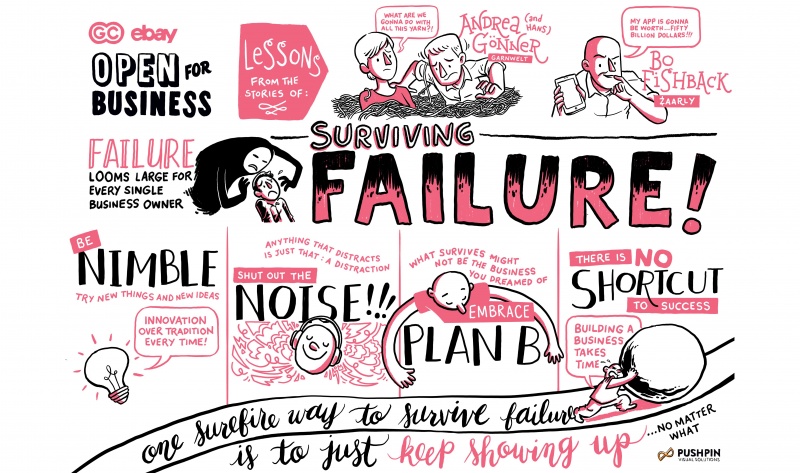
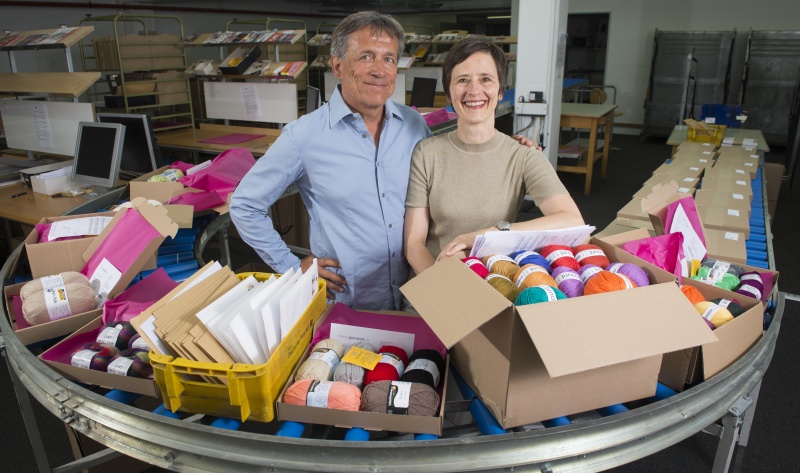
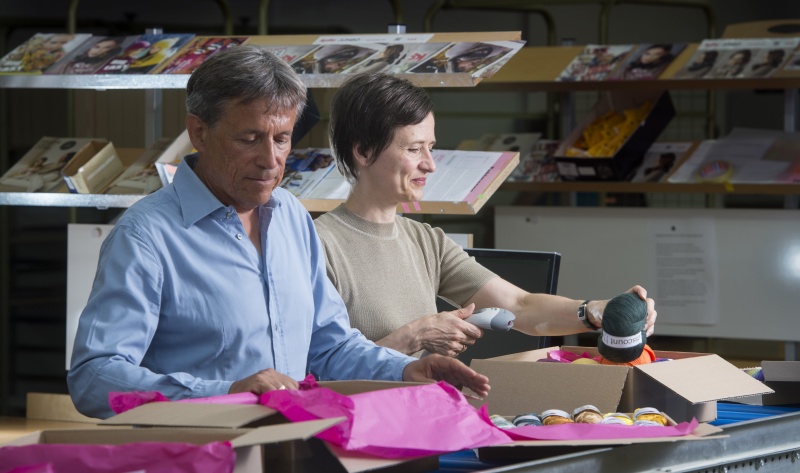
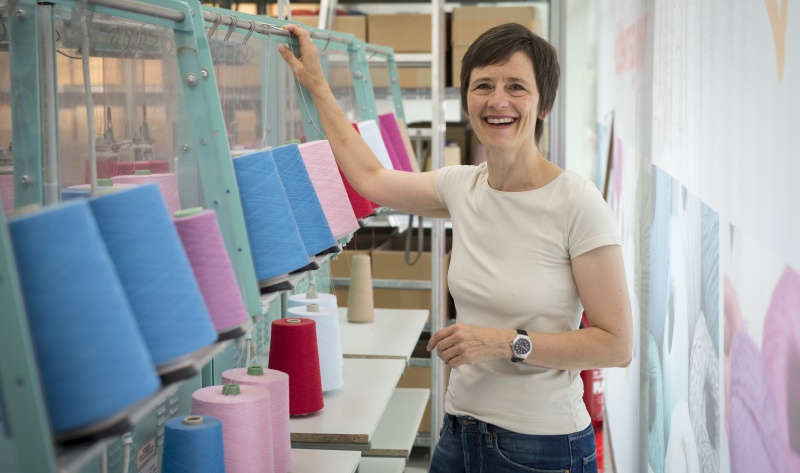
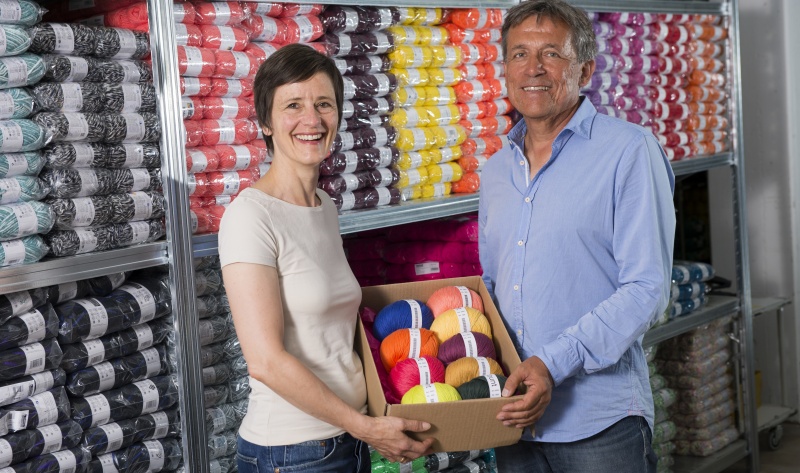
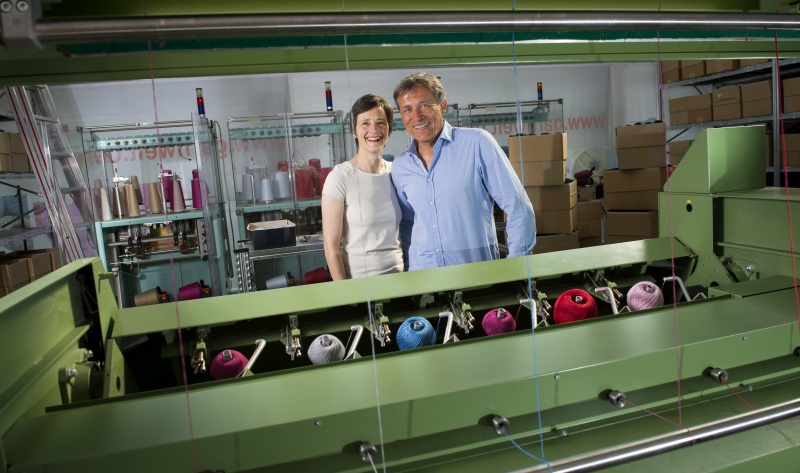


Episode 4: Surviving Failure
Featured Guest: Andrea Gönner, Co-founder - Garnwelt
The world of business is unforgiving. One moment you’re on top of the world, and the next you’re struggling to keep your doors open. For every successful business, there are dozens of examples of failure. In this episode of OFB, we explore failure through the lens of two very different companies, and the lessons learned when things don’t always go as planned.

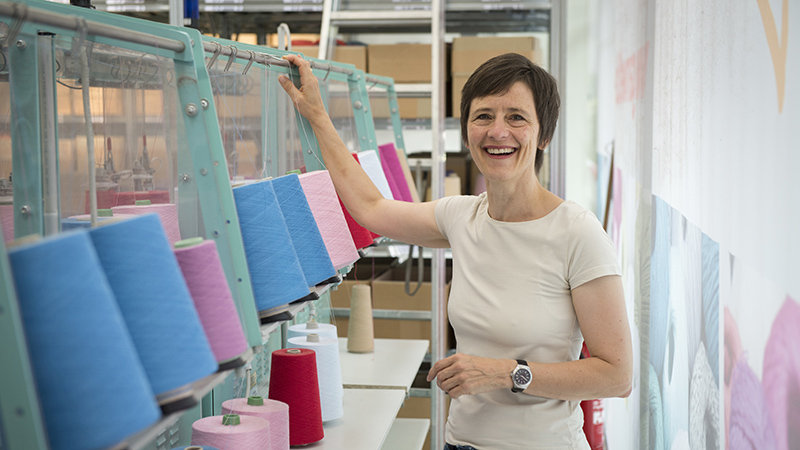
Your Guest
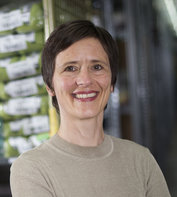
Andrea Gönner
Co-founder - Garnwelt
Before starting their online business Garnwelt, Andrea and her husband owned a big textile company in Riedlingen. This company manufactured and sold ladies’ clothes for many years, until a change in consumer behavior forced them to close shop and liquidate their inventory. As it turned out, selling their yarn on eBay revealed a high demand for quality wool, and a new business was born. In 2015 they relaunched their own wool line, which they successfully sell via eBay. Today, the business employs 40 people and has continued to grow by expanding international sales.
Episode Transcript
JOHN HENRY: Hi, I’m John Henry and this is Open for Business, a branded podcast from eBay and Gimlet Creative about building a business from the ground up.
JOHN HENRY: Hi, I’m John Henry and this is Open for Business, a branded podcast from eBay and Gimlet Creative about building a business from the ground up.
Today, we’re going to hear from two small business owners who, on the face of it, could not be more different.
ANDREA GÖNNER: I’m Andrea Gönner and together with my husband Hans, I was the founder of Garnwelt.
BO FISHBACK: I’m Bo Fishback. I’m the founder and CEO of Zaarly.
JOHN HENRY: Andrea lives in a tiny German town called Riedlingen. Bo’s business is based near Kansas City, Kansas. Andrea is in the yarn business. Bo runs a tech company. Here’s what they have in common: They’ve both watched their businesses fail and they’ve survived to tell the stories.
Now, both Andrea and Bo run small businesses that look very different from the first iteration of their companies. Bo’s story is that of a young entrepreneur fueled by ambition, hype and millions of dollars. Who watched his grand plans fall apart and now is rebuilding his company. Andrea’s story is about salvaging what was left of a family business that thrived for more than a hundred years until the world around them changed, and they couldn’t keep up.
Failure looms large for every single business owner. Today on the show: How to survive it. Back in 2009, Andrea and her husband Hans found themselves knee deep in yarn…
ANDREA GÖNNER: Yes, we had about 20-25 tons of different yarn.
JOHN HENRY: Wow.
JOHN HENRY: That’s 48,000 pounds, if you’re counting. The yarn was what remained of Hans’ 150-year-old family business. It was a women's clothing company that catered to middle-aged women.
ANDREA GÖNNER: So it was like a very, like, conservative knitting wear and as the women changed their ideas of how or what they want to wear, their taste, you know, became more modern
JOHN HENRY: As those tastes became more modern, and textile manufacturing evolved, the family business didn’t keep up.
Andrea’s family kept their factories in Germany for years after many of their competitors moved abroad, where the production costs were lower. By the time they made that move, it was too late.
Things were just done a certain way there. They prioritized that tradition above all else, and that made survival impossible.
ANDREA GÖNNER: It was a family run business for a very long time. Nearly 150 years. So structures are very you know. They were very…
JOHN HENRY: Rigid.
ANDREA GÖNNER: Yes exactly and there was not you know if if if you came up with new ideas it was just like oh no we did it always like that. So let's continue, and so it was very hard...
JOHN HENRY: That brings us back to 2009, when the company’s inability to change caught up with them, and after 150 years in business, they had to shut down. Which meant laying off hundreds of employees and closing multiple factories. And on top of all that, there was the leftover yarn to deal with.
Andrea and Hans noticed that knitting had become a popular hobby in their town and figured they’d try to sell the yarn itself. So, they listed it on eBay under the company name Garnwelt, it means a world of yarn. And, much to their surprise, it started to sell.
ANDREA GÖNNER: And it immediately, it immediately worked. So there was a demand for, for our products. In the beginning we were really sitting there in front of the screen, and say, oh we have an order order coming in.
JOHN HENRY: This was eight years ago. At first, Andrea and Hans planned to simply liquidate their yarn supply and call it a day, but instead their eBay store took off.
Garnwelt has expanded their business online and they’ve also opened a brick-and-mortar store in the same small town where they shuttered their family business. They now employ 20 people and make something like 3-million-dollars in revenue each year.
Andrea has learned a lot about business by watching one fail. One key lesson she’s learned, and the first lesson of today’s show: In order to survive failure, you have to be nimble, you must be willing to try new things and implement new ideas. Relying too heavily on the way things have always been done can lead to the demise of your business.
Which is why, at Garnwelt, innovation takes precedence over tradition, every time.
ANDREA GÖNNER: We’re living in a very fast world now. You know we wake up and things are different than they were today. Yesterday I mean. And so you have always to adjust.
JOHN HENRY: Andrea never imagined that she’d be running a small business selling yarn and making 3 million a year. That’s the thing about failure...if you’re determined to survive it, you never know where it will lead you.
For Bo Fishback, it led here...
JOHN HENRY: Hello
BO FISHBACK: Hey
JOHN HENRY: How are you guys?
BO FISHBACK: Good
JOHN HENRY: I’m John
BO FISHBACK: What’s up, man? I’m Bo
JOHN HENRY: Bo?
BO FISHBACK: Yeah, man
JOHN HENRY: Good to meet you
JOHN HENRY: Today, Zaarly is a small business made up of 13 employees, located on a quiet, residential street in Prairie Village, Kansas. This charming office is a far cry from Bo’s initial dreams for the company. Here’s an interview he did with Mashable, in 2012, shortly after he launched Zaarly.
MASHABLE: We’re at SXSW with the CEO and founder of Zaarly. Bo Fishback is here. Bo, it’s great to have you on the show. Welcome.
BO FISHBACK: Thanks very much
MASHABLE: For those of us who don’t know, tell us what Zaarly is
BO FISHBACK: It’s the idea that you can say what you want, what you’re willing to pay for it and people around you will help get it. So, you go to Zaarly and you name what you want. It can be goods, services, tickets to events...anything you can imagine.
MASHABLE: So this is a crowded space, what distinguishes Zaarly from all the folks out there doing this?
BO FISHBACK: That we’re really targetted on being a meta marketplace. So you can ask for anything: Goods, services, access to experiences um and everyone from small businesses to individuals to large businesses around can provide it and to be honest, you can segment this thing up a lot of different ways. I want the massive meta marketplace, like not a niche that can just work and build a $50-million-dollar company, we’re trying to go and build a $50 billion dollar company.
JOHN HENRY: That 50-billion-dollar company didn’t work out. Bo started Zaarly on a whim in 2011. That year, he went to StartUp Weekend in LA, which is one of those pitch-your-business-idea to investors, type of events. Bo was attending as a judge because, at the time, he worked at a non-profit that funded entrepreneurial causes.
However, he’d had this idea for a company for a while, and he’s not a shy guy. So, he decided: why not? He got on stage and pitched the idea at StartUp Weekend. Here’s a clip from that pitch...
BO FISHBACK: Basically, I want to be able to buy stuff that wasn’t necessarily already for sale and I want to be able to buy stuff near me when I want it. To give you an example, this weekend, I knew that Startup weekend was just going to rock it out. I wanted an LA Startup Weekend t-shirt, I wanted 50 signatures from the people who were here on that t-shirt, and obviously, no one was actively selling that, so I posted to Zaarly that that’s what I was looking for and two hours later I had this shirt.
JOHN HENRY: Bo is on stage here, wearing a backwards baseball cap and that t-shirt he bought on Zaarly. He’s in front of a screen, emblazoned with the Zaarly logo. The Z looks like a dollar sign and the tagline is where everything has a price.
BO FISHBACK: So, what are we? We’re a proximity based, real-time buyer powered network and buyer-powered is really important and you’ll see why. So, what do you do with that, right? The possibilities are really endless…
JOHN HENRY: If this pitch is familiar that’s probably because it sounds a lot like TaskRabbit. But Zaarly had way grander ambitions, it was supposed to be this marketplace for everything. And back in 2011, that on-demand marketplace for goods and services was still a new and exciting idea, especially to investors at StartUp Weekend.
BO FISHBACK: I mean on Sunday night by the time I got back to Kansas City actually I mean, I had like drafted term sheets in my inbox from people who were there that night, and it was like, there's no company guys...
JOHN HENRY: There wasn’t a company, but there were lots of people offering to invest. People like Ashton Kutcher. Yup, the Ashton Kutcher. Famous Hollywood actor, ex-husband to Demi Moore and current husband to Mila Kunis. He happened to be in the StartUp Weekend audience and he invested in Zaarly’s million-dollar seed round.
The tech press swarmed around Zaarly. This was the headline within a few months of Bo’s pitch on the StartUp Weekend stage:
“Zaarly Reels in $14 Million…”
It’s what every tech startup dreams of. Within 6 months, Bo had raised something like 15-million-dollars.
JOHN HENRY: And what did that feel like, when you got, when you closed in on a 15-million-dollar round?
BO FISHBACK: So you know, honestly what it felt like was great, let's go back to work, I don't have to talk to investors for a while, it felt like something that I could take off my plate.
JOHN HENRY: You weren't like, I just got all this money, I'm 90 days in, like can we even pull this off?
BO FISHBACK: No that came later. At the time I was like, there’s not enough time in the day to do all the things we need to do. And everybody's going to be rich.
JOHN HENRY: By this point, Zaarly was valued at $50 million dollars. A 50-million-dollar company without a functioning product. That utopian site where anyone could post a need for a good or a service anywhere in the country, and then multiple sellers would offer to fill that need? That was not working.
There weren’t enough sellers to fulfill buyer’s requests on Zaarly. And, the ones that were there, weren’t reliable. But none of those problems mattered at the time. Everyone -- Bo, his team, the investors, everyone was all in on the concept. So, Zaarly began to grow.
BO FISHBACK: We hired up a bunch of people and some of them were kids, right out of college and some of them were people who had been building stuff for a long time. Like, we were just like doubling down and like putting a war chest together.
JOHN HENRY: Zaarly opened a beautiful new office space in San Francisco and then another in New York City. And in both places, they paid to house employees in lavish apartments. All this excitement distracted from that fundamental flaw in Zaarly’s business model: People looking to buy stuff were posting, all over the country. One woman wanted to buy a backpack in North Carolina, some guy was looking for a homecooked meal in San Francisco. But very few sellers were offering to fulfill those requests.
This became painfully clear one day. Seven months into the founding of the company, a user logged on to Zaarly to request the services of a rabbi. But it wasn’t just any user. It was Ashton Kutcher.Here’s Jeff Morris, an early Zaarly employee...
JEFF MORRIS: So, we were getting like really standard requests...like, hey I need someone to deliver beer, I need someone to clean my house, whatever, and we were watching every request that would come in. And we saw that Ashton made a request, um it was the first time Ashton had used Zaarly and he requested a rabbi to come to his house within 24 hours.
JOHN HENRY: If Zaarly had been working properly - here’s what would have happened: A rabbi would have responded to Ashton’s request. Ideally not just one rabbi, multiple rabbis would have responded to Ashton Kutcher and he would have had his pick. He would have been able to vet the rabbis and then pick his favorite. But, that’s not what happened. What happened is that Ashton Kutcher’s rabbi request sent the company into a panic because no rabbis were responding. And so the employees had to scramble...
JEFF MORRIS: So then, the next like 24 hours of my life were spent calling all of my Jewish friends in LA and asking if they knew a rabbi who would go, um go to a celebrity's house. And I couldn’t say who it was. One of my friends who I went to film school with, sent his wife who had just become a rabbi to Ashton’s house, and she arrived and it was Ashton and Demi Moore and the kids.
JOHN HENRY: Obviously, Zaarly’s employees couldn’t do this for every user, but they were starting to have to. At the time, it felt like this was just something they had to do until the platform started to work… But the longer that took, the more buyer requests were being handled by panicked Zaarly staffers. This was not a sustainable business model. And the numbers were bearing that out.
BO FISHBACK: Nine percent of things that were getting posted were getting fulfilled and I was like, that is not good at all. That's just not what wanted to build, man, like a gigantic noisy thing where you posted it and 9 percent of the time, the thing you wanted happened, like, that's the very opposite of like, the magic wand we wanted to create, it was like, it was like we had 3000 requests and nine percent of them got fulfilled. Shit.
JOHN HENRY: A year in, it was clear that Zaarly needed to make a major fix to their product. But Bo and his core team were distracted by all of the other stuff happening the company: They were spending time and money planning big events and social media campaigns to get the word out. They even launched a college campus outreach program. All before they had a functioning product. That momentum was pushing them, but in the wrong direction.
BO FISHBACK: We kind of spun up we hired a bunch of people and like whatever, there was 40 people running around the office and like trying to launch programs on college campuses, and in cities all over the place and trying to do all that at once when we did not have, like, the real insight, of, like, is this marketplace working the way you want it to? In hindsight what I would say is that, I didn't maybe realize like how, how empowered I was to slow that down at the time.
JOHN HENRY: This brings us to lesson number two: As a new business, anything that distracts you from perfecting your core offering, that product or service that got you to start a business in the first place, is just that: a distraction. As much as possible, shut out the noise.
To break this cycle and turn things around, some senior staff members at Zaarly decided to do an experiment. They needed to know who was using the product when there was no incentive to do so. So, they removed all promotions from Zaarly to see which customers stuck around.
JAMIN JANTZ: When we did that the bottom kind of dropped out.
JOHN HENRY: This is Jamin Jantz. He was one of Zaarly’s early employees on the product team.
JAMIN JANTZ: And there was, you know, it's not like an immediate panic, but it's like oh, ok well that's great because that's where we really are. And that's terrifying because that's where we really are. And then you have to figure out what you're going to do from there. I think that's where the first signs of this first iteration of product of this reverse marketplace, um, it's not working.
JOHN HENRY: Roughly two years after Zaarly launched to great fanfare, the company wasn’t working. Coming up after the break: How Bo finally dealt with the dire state of the business and made some difficult decisions he’d been avoiding.
************************************************AD BREAK************************************************
JOHN HENRY: I’m John Henry. This is Open for Business and we’re talking about surviving failure. By the summer of 2013, roughly two years after launch, it was clear that for Zaarly to survive at all, something drastic had to change. Bo realized that the company would have to downsize almost as quickly as it grew, and because the thing they were spending the most money on was people. He had to lay off many of them.
BO FISHBACK: sitting in front of a room of 25 people in a room and being like...I fucked this one up guys. It sucked. I remember taking a picture of myself after everybody left and being like I'm going to just keep this picture so I remember this day so this doesn't get recreated. I remember that. It was a moment of reckoning that frankly like I'd earned, I guess is kind of what it comes down to, right? It's not like an excuse laden thing, it's like what can I do, shouldn't have hired all those people before you figured the company out, right?
JOHN HENRY: This is when Bo turned his attention to exactly that: figuring out the company. At this point, the Zaarly office in New York was already closed. The one in San Francisco was on the way to being shuttered. Those lavish staff apartments were also phased out. Bo stopped all the extraneous stuff: the campus outreach programs, the social media campaigns, the live events. Anything that didn’t have to do with getting Zaarly working, simply had to go.
Once Bo and his team were able to focus, they could see a path for Zaarly. It wasn’t the marketplace they’d envisioned. But, it was serving a purpose for a specific group of people. Service providers like, gardeners, carpenters and house cleaners were using Zaarly. And buyers were using their services. This little part of the product was working! It was like a light went off for Bo...
BO FISHBACK: And I remember actually a couple people on the team. They were like hey, it's not just services that are making this market tick it's actually home services
JOHN HENRY: Now, Zaarly’s focus is making that marketplace the best it can possibly be for those home service providers and the buyers seeking them out. This version of Zaarly is exactly what Bo said he didn’t want in that interview he gave right after he started the company. It’s the niche marketplace. Not the 50-billion dollar, everything-for-everyone-dream.
And this brings us to our third lesson: The version of your business that survives may not be the business you dreamed of. Prepare yourself to say goodbye to Plan A and embrace Plan B, even if it looks very different than your original vision. Bo has done just that. Without the distractions, he’s been building the Plan B version of Zaarly as a small business first. He’s doing that by getting the word out - not through huge, expensive marketing pushes, but rather, in a targeted and strategic way.
BO FISHBACK: How do you penetrate word of mouth, right? So whether it's influencers, whatever, mommy bloggers, you can do all kinds of stuff if you're in the world of Home Services right. So like, we did all those things. One of them that we had long thought was probably really high impact, where existing word of mouth is super duper concentrated was actually realtors.
JOHN HENRY: Zaarly has grown their userbase by partnering with real estate agencies. And, as a result, their product is getting in front of those who really need it: people buying and selling homes.
The company is focused. And that has influenced the way that Bo thinks about hiring. Specifically, he’s learned that more employees doesn’t necessarily mean more productivity. The 13 people who work at Zaarly today are all there for a purpose, doing what they’re good at.
BO FISHBACK: I think especially in small companies like everybody rowing in the same direction and making sure that everybody is really dialed in on their area of core competence across my whole team. One of the 40 people, from the time I had three people or 40 people, when things got askew is when you asking people to do things they weren't good at, and having to learn everything on the job at a startup is too expensive, like it's just too expensive. So let the people who are good at writing, write. And if you don't need somebody who's good at writing don't hire them like let the people who are good at designing, design and you know, like it's I think I'm a I'm a very big believer in surrounding yourself with like really good core competencies and knowing your own.
JOHN HENRY: One of those employees is Jamin Jantz. He’s been with Zaarly since the beginning. He even moved with his wife and kids across the country twice, to stay at the company. Jamin says he knows there will continue to be ups and downs, but he still believes in the vision...
JAMIN JANTZ: I came in with zero experience in startups and not having any idea what I was getting myself into.
But things are hard and, and some days you feel like you're going to, you're the top of the world and other days like we are, there's no way we're going to win. We are going to fail. And this is a disaster and why did I ever do this?
And sometimes that happens on the same day.
The doubts that are honestly always at the back of my mind, and I think if someone is honest anybody who's in a startup, one of the doubts is just, am I on the deck of the Titanic, you know? The ship is sinking, nothing's going to stop that and am I just like rearranging deck chairs? Because you never really know if your startup is successful until it's successful. It’s very rare, very, very rare, where you’ll just see it and absolutely know that 100% it’s a rocket ship taking off.
JOHN HENRY: If any company seemed like it was going to be that rocket ship taking off, it was Zaarly. But it didn’t turn out that way. After six years of ups and downs, million-dollar fundraising rounds and layoffs, Bo has learned our fourth lesson: When you’re building a company, there’s no shortcut to success. Building a successful business takes time. There’s lots of attention on those rocket ships but once that attention fades, that’s usually when the hard work begins.
Bo still believes in the 50-billion-dollar future. He just thinks it’s going to take him a lot longer to get there...
BO FISHBACK: This is actually a company that like you build for a lifetime if you're going to get it right. And so then the question is like, hey, who's up for that and who's not? That's why I still work here because like this is the only job I've ever had that like, I would love to have this job in 20 years.
JOHN HENRY: He also believes this, and this rang true from my own experience as an entrepreneur: One surefire way to survive failure is to just keep showing up, no matter what...
BO FISHBACK: The two reasons startups fail: They run out of money and the founder quits. If one of those two things doesn't happen, it's still a company. And I think there are a lot of really great companies that like to grind their way to success, we will be one of them.
JOHN HENRY: To recap today’s lessons:
Lesson number one: Be nimble. In order to survive failure, you have to be nimble, willing to try new things and implement new ideas. Relying too heavily on tradition and the way things have always been done can contribute to the demise of your business.
Lesson number two: Shut out the noise. Anything that distracts you from your core business, that product or service that got you to start your company in the first place, is just that: a distraction.
Lesson number three: Embrace Plan B. The version of your business that survives may not be the business you dreamed of. Prepare yourself to say goodbye to Plan A and embrace Plan B.
Finally, lesson number four: There’s no shortcut to success. Building a successful business takes time. There’s lots of attention on those rocket ships but once that attention fades, that’s usually when the hard work begins.
To learn more about us, checkout ebay.com/openforbusiness.
On the next episode of Open for Business: Recent data suggests entrepreneurship is increasingly clustered in a handful of major cities. We’ll hear from entrepreneurs outside those hubs about how they’ve learned to make the most of wherever they are.
MARTY BABAYOV: So my first storefront was actually located in my bedroom. Believe it or not.
JOHN HENRY: Like, literally people were walking in there?
MARTY BABAYOV: Because it's a small community if you lived in New York City and you put up signs Hey I've got suits. Come on see me in my bedroom and try ‘em on. Show and probably call the cops on you.
That’s next week on Open For Business!
Open for Business is a co-production of eBay and Gimlet Creative. Our theme song is by Vulfpeck.
We’re produced by Katelyn Bogucki, Frances Harlow, Abbie Ruzicka, Nicole Wong, RMW and Julia Botero. Zac Schmidt is our engineer. Creative Direction by Nazanin Rafsanjani. Production assistance from Grant Irving.
Special thanks to: Daniel Pearson, Myriah Zaytoun, and Tom Kolbeck.
Subscribe to Open for Business on iTunes, Stitcher, or any other podcaster app. And while you’re there- leave us a review and tell us why! It’ll help other people discover our podcast.
I’m John Henry. This is Open for Business. Thanks for listening.
Topic: Commerce

